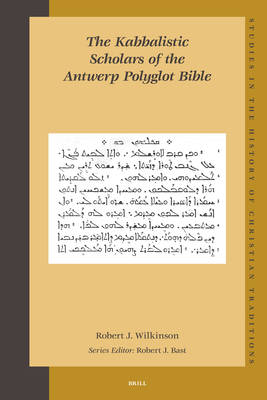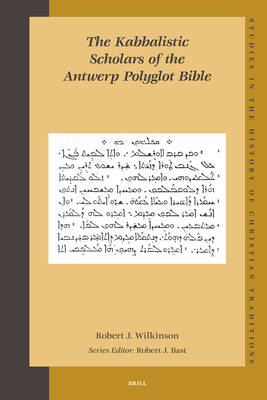
- Afhalen na 1 uur in een winkel met voorraad
- Gratis thuislevering in België vanaf € 30
- Ruim aanbod met 7 miljoen producten
- Afhalen na 1 uur in een winkel met voorraad
- Gratis thuislevering in België vanaf € 30
- Ruim aanbod met 7 miljoen producten
Zoeken
Omschrijving
This work places the Syriac New Testament in the Antwerp Polyglot within a new appreciation of sixteenth century Catholic Syriac and Oriental scholarship. The Spanish antecedents of the Polyglot and the role of Montano in its production are evaluated before the focus is turned upon the Northern Scholars who prepared the Syriac edition. Their motivation is shown, particularly in the case of Guillaume Postel, to derive from both Christian kabbalah and an insistent eschatological timetable. The principles of Christian kabbalah found in the Polyglot are then shown to be characteristic also of Guy Lefevre de la Boderie's 1584 Paris edition of the Syriac New Testament dedicated to Henri III. This work completes the account of sixteenth century Syriac bibles begun in the companion volume Orientalism, Aramaic and Kabbalah in the Catholic Reformation which also appears with Brill.
Specificaties
Betrokkenen
- Auteur(s):
- Uitgeverij:
Inhoud
- Aantal bladzijden:
- 141
- Taal:
- Engels
- Reeks:
- Reeksnummer:
- nr. 138
Eigenschappen
- Productcode (EAN):
- 9789004162518
- Verschijningsdatum:
- 1/11/2007
- Uitvoering:
- Hardcover
- Formaat:
- Genaaid
- Afmetingen:
- 164 mm x 245 mm
- Gewicht:
- 399 g

Alleen bij Standaard Boekhandel
+ 396 punten op je klantenkaart van Standaard Boekhandel
Beoordelingen
We publiceren alleen reviews die voldoen aan de voorwaarden voor reviews. Bekijk onze voorwaarden voor reviews.








